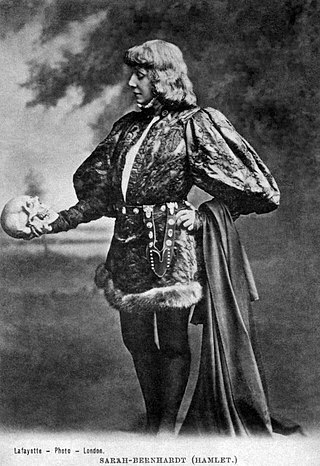Related Research Articles

George Edward Moore was an English philosopher, who with Bertrand Russell, Ludwig Wittgenstein and earlier Gottlob Frege was among the founders of analytic philosophy. He and Russell led the turn from idealism in British philosophy and became known for advocating common-sense concepts and contributing to ethics, epistemology and metaphysics. He was said to have an "exceptional personality and moral character". Ray Monk later dubbed him "the most revered philosopher of his era".
Emotional intelligence (EI) is most often defined as the ability to perceive, use, understand, manage, and handle emotions. People with high emotional intelligence can recognize their own emotions and those of others, use emotional information to guide thinking and behavior, discern between different feelings and label them appropriately, and adjust emotions to adapt to environments.

Happiness, in the context of mental or emotional states, is positive or pleasant emotions ranging from contentment to intense joy. Other forms include life satisfaction, well-being, subjective well-being, flourishing and eudaimonia.

The word joy refers to the emotion evoked by well-being, success, or good fortune, and is typically associated with feelings of intense, long lasting happiness.

Philo of Alexandria, also called Philo Judaeus, was a Hellenistic Jewish philosopher who lived in Alexandria, in the Roman province of Egypt.

Discipline refers to rule-following behavior, to regulation, order, control and authority. It may also refer to punishment. Discipline is used by those in authority to encourage habits, routines, and automatic mechanisms such as blind obedience. It may be inflicted on others or on oneself. Self-discipline involves the practice of self-restraint, controlling one's emotions, and ignoring impulses.
Civil disorder, also known as civil disturbance, civil unrest, or social unrest is a situation arising from a mass act of civil disobedience in which law enforcement has difficulty maintaining their authority.
A cognitive distortion is an exaggerated or irrational thought pattern involved in the onset or perpetuation of psychopathological states, such as depression and anxiety.

Bright Young Things is a 2003 British drama film written and directed by Stephen Fry. The screenplay, based on the 1930 novel Vile Bodies by Evelyn Waugh, provides satirical social commentary about the Bright Young People—young and carefree London aristocrats and bohemians—as well as society in general, in the interwar era.
Pathos appeals to the emotions and ideals of the audience and elicits feelings that already reside in them. Pathos is a term used most often in rhetoric, as well as in literature, film and other narrative art.

Emotional Design is both the title of a book by Donald Norman and of the concept it represents.

Emotional reasoning is a cognitive process by which an individual concludes that their emotional reaction proves something is true, despite contrary empirical evidence. Emotional reasoning creates an 'emotional truth', which may be in direct conflict with the inverse 'perceptional truth'. It can create feelings of anxiety, fear, and apprehension in existing stressful situations, and as such, is often associated with or triggered by panic disorder or anxiety disorder. For example, even though a spouse has shown only devotion, a person using emotional reasoning might conclude, "I know my spouse is being unfaithful because I feel jealous."
A platitude is a trite, meaningless, or prosaic statement, often used as a thought-terminating cliché, aimed at quelling social, emotional, or cognitive unease. The statement may be true, but its meaning has been lost due to its excessive use.
Akrasia is a lack of self-control, or acting against one's better judgment. Beginning with Plato, a variety of philosophers have attempted to determine whether or not akrasia exists and how to best define it.
Child development stages are the theoretical milestones of child development, some of which are asserted in nativist theories. This article discusses the most widely accepted developmental stages in children. There exists a wide variation in terms of what is considered "normal", caused by variations in genetic, cognitive, physical, family, cultural, nutritional, educational, and environmental factors. Many children reach some or most of these milestones at different times from the norm.

Calmness is the mental state of peace of mind being free from agitation, excitement, or disturbance. It also refers being in a state of serenity, tranquillity, or peace. Calmness can most easily occur for the average person during a state of relaxation, but it can also be found during much more alert and aware states. Some people find that focusing the mind on something external, such as studying, or even internal, such as the breathing, can itself be very calming.

Well-being, or wellbeing, also known as wellness, prudential value or quality of life, refers to what is intrinsically valuable relative to someone. So the well-being of a person is what is ultimately good for this person, what is in the self-interest of this person. Well-being can refer to both positive and negative well-being. In its positive sense, it is sometimes contrasted with ill-being as its opposite. The term "subjective well-being" denotes how people experience and evaluate their lives, usually measured in relation to self-reported well-being obtained through questionnaires.

Subjective well-being (SWB) is a self-reported measure of well-being, typically obtained by questionnaire.

The paradox of fiction, or the paradox of emotional response to fiction, is a philosophical dilemma that questions how people can experience strong emotions to fictional things. The primary question asked is the following: How are people moved by things which do not exist? The paradox draws upon a set of three premises that seem to be true prima facie but upon closer inspection produce a contradiction. Although the ontology of fictional things in general has been discussed in philosophy since Plato, the paradox was first suggested by Colin Radford and Michael Weston in their 1975 paper "How Can We Be Moved by the Fate of Anna Karenina?". Since Radford and Weston's original paper, they and others have continued the discussion by giving the problem slightly differing formulations and solutions.
The fading affect bias, more commonly known as FAB, is a psychological phenomenon in which memories associated with negative emotions tend to be forgotten more quickly than those associated with positive emotions. It is important to note that FAB only refers to the feelings one has associated with the memories and not the content of the memories themselves. Early research studied FAB retrospectively, or through personal reflection, which brought about some criticism because retrospective analysis can be affected by subjective retrospective biases. However, new research using non-retrospective recall studies have found evidence for FAB., and the phenomenon has become largely accepted.
References
- Solomon, Michael R. (2011). Consumer Behavior: Buying, Having, and Being. Upper Saddle RIver, New Jersey: Pearson Education, Inc. pp. 113, 630. ISBN 978-81-203-4281-1.